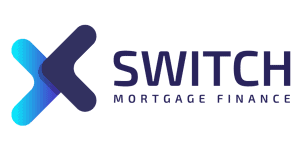How Much Can You Borrow If You Are Self Employed?
- Independent mortgage specialists
- Secure the best mortgage for your circumstances
- Professional, qualified & reliable mortgage advice
Home » Self Employed Mortgages » How Much Can You Borrow If You Are Self Employed?

Author: Elliott Culley - Director & Mortgage Adviser of Switch Mortgage Finance
Why Is It So Difficult To Find Out How Much I Can Borrow As A Self Employed Individual?
Finding out how much you can borrow if you are self employed can be extremely difficult to find out and will take up a huge amount of time.
We know your time is precious and you don’t want to use it trying to find out which lender will offer you the most money. A self employed mortgage can be more difficult than you may think to obtain.
If you spoke to 3 separate mortgage lenders, the likelihood is you will find the borrowing amount offered to be significantly different.
The borrowing ability for a self employed applicant from mortgage lender to mortgage lender is night and day. Each mortgage lender’s affordability calculations are unique and therefore your borrowing potential with each mortgage lender is different.
How Do Lenders Assess My Income?
When it comes to the self employed market, mortgage lenders consider your income in different ways. The main difference will depend on how you are set up. Are you a sole trader, partner or ltd company director? Mortgage lender will have different requirements to assess your income based off this.Why Can I Borrow Less With Some Mortgage Lenders When I Am Self Employed?
Unfortunately there are some lenders that offer self employed applicants far less to borrow.
This is down to the mortgage lenders own risk assessment of self employed applicant and as a result what restrictions they place on self employed. A few examples would include:
• Using an Average of your latest two years accounts
• Using a low loan to income value (usually 4.49x) regardless of your annual earnings
• Using the lowest figure from your last two years accounts.
However, there are many lenders in the mortgage market offering favourable terms for self employed applicants and as a result the borrowing ability can increase significantly. These mortgage lenders want to lend to you and you will find you will want to lend with them.
Speak to an Expert!

Contact us today for expert advice and guidance on your unique mortgage and property needs. We will work with you on a one-on-one to basis to help you find the right solution for your needs.
With our experience you can rest assured that you are in good hands when it comes to securing the financing you need for your property.
How Do I Know Which Lenders Will Allow Me To Borrow More?
The key is knowing which lenders can offer you the best borrowing amount. No mortgage lender will tell you upfront what you can borrow. You need to go through a fact find, provide income proof and then after an hour of interrogation they will then offer you a small mortgage.
The last thing you want to do is to waste an hour finding out the borrowing amount is extremely low. You would then need to repeat the process at another lender and you could get a worse or similar result. Providing your information to each individual lender is a slow and tiring process, and not one fit for the self employed community.
That’s where a mortgage broker comes in. Firstly a mortgage broker will know which lenders will benefit your scenario, they will know which lenders offer the most money for self employed and they will be able to tell you after about 30 minutes of your time.
A whole of market broker will have access to 90+ lenders and will be able to approach the right lenders for you straight away.
No time wasted, and the best possible mortgage for your needs and circumstances. It really is as simple as that.
How To Maximise Your Borrowing Potential If You’re Self-Employed
Ultimately, the maximum amount you can borrow rests on how closely you match a lenders’ risk profile. Being more eligible for a mortgage means more lenders and deals to choose from, which can indirectly affect the amount you could borrow.
How much you earn: Higher earnings opens more doors. A lender is more likely to offer a higher loan to income multiple when assessing your borrowing potential.
Deposit: Lowering your loan to value (LTV) gives lenders confidence and could result in a lower rate that allows you to borrow more.
Steady Accounts: Annual figures which show inconsistency are likely to reduce the overall borrowing amount offered by mortgage lenders. For example if your most recent years figures is lower than the year before a lender will be worried about the sustainability of the business and use the lower figure instead of an average.
Check your credit file: Missed payments and adverse credit will affect your borrowing ability. Ensure everything is up to date and get any misinformation deleted as well as making sure you’re on the electoral roll.
Tidy up your finances: Keep your expenditure minimal and if you can reduce or pay off any outstanding credit cards or unsecured loans.
Why Switch Mortgage Finance
- Raising The standards of financial advice
- Making financial advice accessible to all
- Trusted & stress-free financial advice
- Friendly, personable advisors









